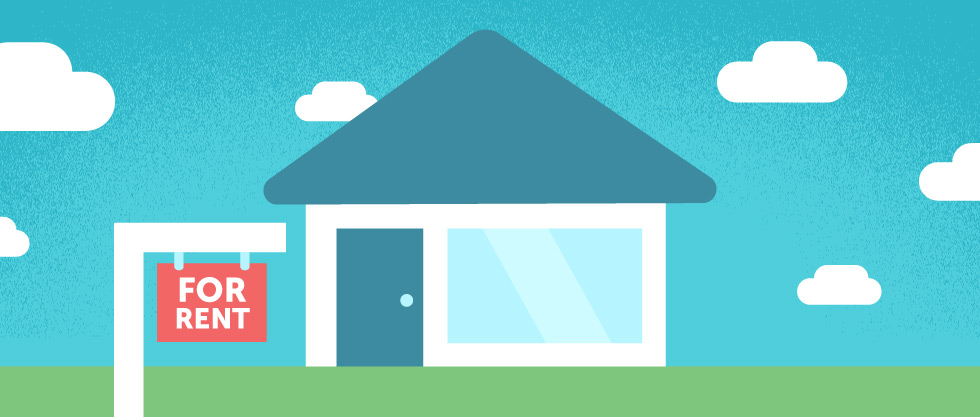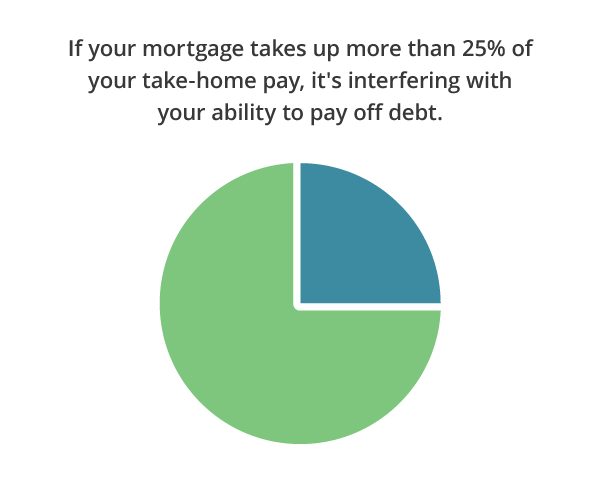2 Ways Your Home Can Make You Debt-Free Faster

f you’re like most homeowners, housing is your largest budget category. That makes it a prime target for trimming as you work to dig out of debt.
You’ve got a couple of choices when it comes to reducing your housing costs: You can either refinance your mortgage or sell your home and rent while you pay off debt. The effectiveness of these options will depend on your individual situation, so you’ll need to examine each one closely to see if either will work for you.
We’ve put together a couple of examples to help you see how each option could affect your ability to pay off debt.
Ready to Refi?
First things first: The goal of refinancing your mortgage should be to reduce your interest rate—not your payment. Never refi your mortgage into a longer term just to have more cash on hand each month, even if you plan to use it to pay off debt. You’ll end up paying more in interest, and who wants to sign up for a debt that lasts 30 years or more?
With that said, refinancing to get a lower mortgage rate can also have the pleasant side effect of a significantly lower monthly payment. For example, the payment on a $200,000, 15-year mortgage with a 6% interest rate is about $1,670 a month. If you lower your rate to 4%, you’ll save almost $200 a month and $37,500 in interest over the life of the loan. That’s $200 you can roll into your debt snowball each month!
Not a bad deal—plus, you didn’t have to pack up and move!
Remember, too, that a refinance makes sense when you’re planning to stay in your home long enough to recoup the closing costs of your refinance. If it costs $4,000 to refinance that $200,000 mortgage, you’d recover those costs in less than two years.
Returning to Rent
Selling your home and renting a place while you pay off debt can be tricky. According to the U.S. Census Bureau’s 2014 American Community Survey, the typical rent is $920 a month while the typical monthly mortgage payment is about $1,065—not a huge difference.
Of course, no one is perfectly typical. If you have an expensive mortgage that’s eating up more than 25% of your take-home pay, it’s definitely interfering with your ability to pay off debt. Let’s say you make $50,000 a year and your house payment is a little more than $1,200. You’re paying about $15,000 a year just on your mortgage. After taxes, food and other essentials, there’s very little left for paying off debt.

If you sold your home and found a place to rent for the typical $920 a month, you’ll have $280 a month more to throw at your debt. But is that enough to convince you to give up your home?
The game-changer is your equity. If you owe more on your home than you can sell it for, hold on to it and find a way to increase your income to pay off your debt.
But you could have more equity than you think. In many parts of the country, willing buyers outnumber the homes available—and that pushes home values up. If you’ve got a good chunk of equity, you’ll have to decide if the profit from selling your home will make a big enough dent in your debt to make moving worthwhile.
So Which One Is Best for Me?
If you don’t have much equity, or you hate the thought of uprooting your family even to pay off debt faster, look into a refinance. It could end up being a painless way of beefing up your debt snowball.
But if your mortgage is too expensive, or if you think you have enough equity to really take a chunk out of your debt total and you don’t mind the hassle of moving, check with an experienced real estate agent who knows your local market.
Your real estate pro will show you how much you can expect your home to sell for based on recent, nearby sales of homes like yours—a comparative market analysis (CMA).
Comments
Post a Comment